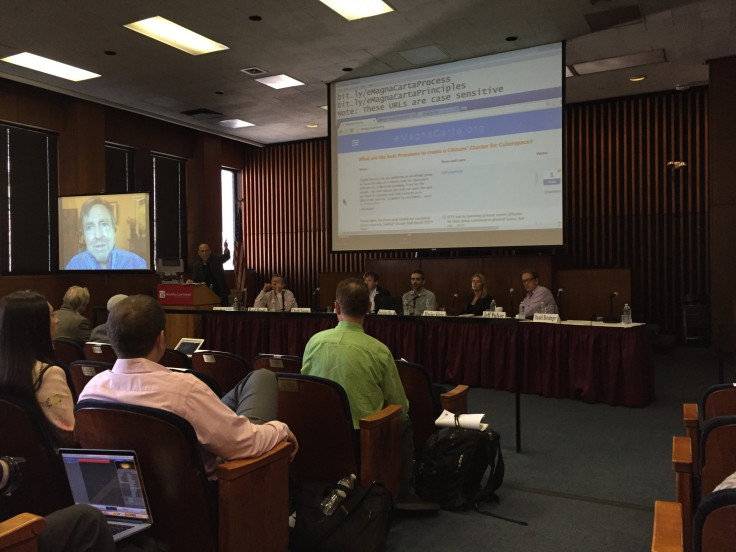Does The Internet Need An 'E-Magna Carta'? New Website Aims To Create Charter For The Digital Age

What should a Magna Carta for the digital age look like? At Brooklyn Law School on Thursday, notables from the world of Internet activism, law and civil liberties met to discuss a charter for the net, and the event debuted the website emagnacarta.org to facilitate collaboration on such a document, 800 years after the signing of the original -- part of Britain's constitution.
But hasn't this always been a problem with the Internet? "The problem of Internet governance arose when the technology shifted, to everyone's surprise [...], into the cable platform," said Reed Hundt, former chair of the Federal Communications Commission. Hundt explained that before the shift to cable, the Internet was more a service that ran on top of existing telephone infrastructure, governed by the rules of telephony.
The shift to cable networks started a debate: Should the Internet look like phone networks, where anyone can get a line and call anyone, or like cable TV networks, where providers decide what gets transmitted to each household? Despite Congress' declaration that the Internet is a public service, questions remain over who controls the Internet and what rules should be in place to protect it.
The issue is a crucial one, as revolutions, global businesses and countries all organize themselves over the Internet. "Communication exists to hold power accountable," said Daniel Berninger, the founder of the Voice Communication Exchange Committee (VCXC), a nonprofit startup pushing for a transition to all-IP networks. Berninger explained that the First Amendment exists to keep power in check, as freedom of communication is important to the population's organization against governing powers.
It's an issue that affects everyone, and members of the public are invited to visit the panel's website to provide input. Professor Charlie Neeson from Harvard Law School has contributed an application for organizing ideas based on the Socratic method. Currently, the site is asking for suggestions on what principles should be included in such a charter, and what are the best processes to create a charter.
There are 35 days remaining to provide input on the best processes around creation of a document, and the project's aim is online collaboration leading to a digital rights charter drafted through public participation.
© Copyright IBTimes 2024. All rights reserved.






















